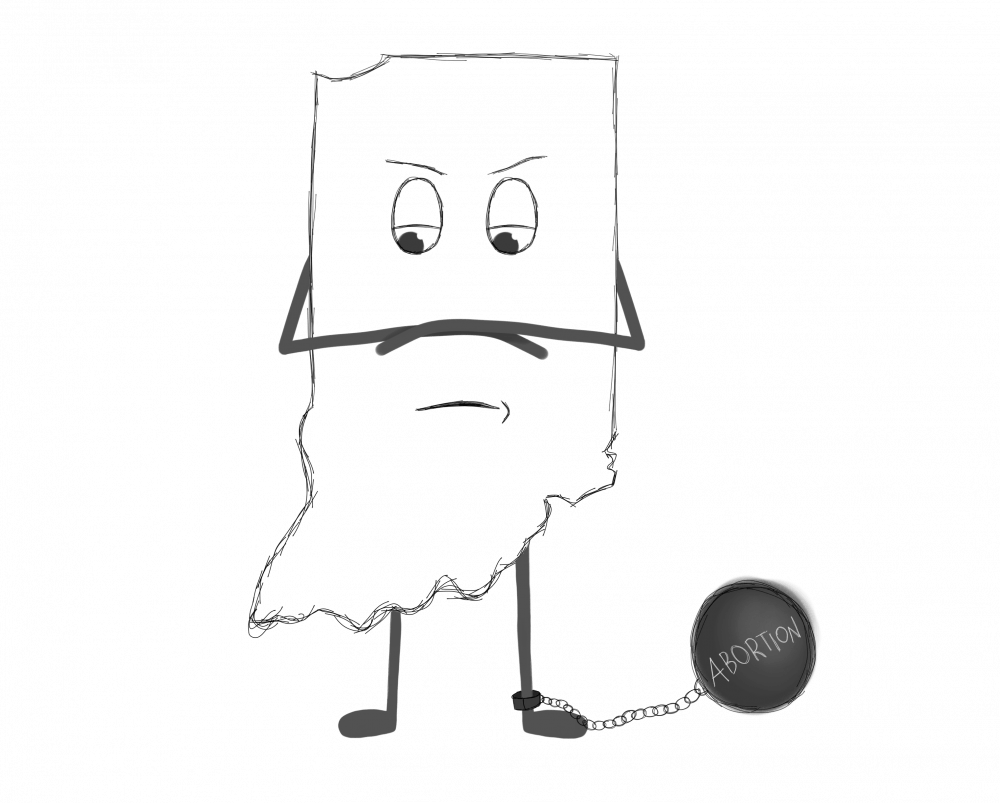A new Indiana law is prohibiting abortions sought due to diagnosed fetal genetic conditions. The Editorial Board believes this law violates the privacy and autonomy of those seeking abortions and acts as a step toward criminalizing abortion as a whole.
NARAL Pro-choice America, a non-profit organization formerly known as the National Abortion and Reproductive Rights Action League, has claimed that reproductive rights access in Indiana is severely restricted, with 66 percent of Hoosier women living in counties without abortion clinics.
Besides prohibiting abortion based on genetic disabilities, this law, House Enrolled Act 1337, requires the identities of abortion providers be public, all individuals seeking abortions to receive an ultrasound within 18 hours of the procedure, and fetal remains must be cremated or buried by the facility in possession of the remains. Individual doctors would be liable for violations of this law.
“By declaring unconstitutional a state law that would bar abortions based solely on race, sex or disability such as Down syndrome, a federal judge has cleared the path for genetic discrimination that once seemed like science fiction,” said Attorney General Curtis Hill to the Indianapolis Star.
It is understandable people are disturbed by someone who may seek to terminate a pregnancy solely because the baby may have a genetic disability.
The issue the Editorial Board takes with this law is that it requires abortion recipients to have motivations for wanting an abortion the state has deemed to morally permissible. An individual should not be forced to explain every detail behind their motivation.
This information is very personal and intimate. Anyone should be able to terminate their pregnancy without having to explain why.
Further, there can multiple factors in a person's decision to terminate a pregnancy, even in situations containing the issue of children with genetic disabilities. By delineating which motivations are impermissible, Indiana ignores the many other permissible motivations that may concurrently exist.
According to the U.S. Department of Agriculture, raising a child from birth to age 18 costs more than $240,000. The cost is even greater when the child has a genetic disability. These costs may not sustainable for some individuals who become pregnant.
This raises the separate problem that the current U.S. health care system is not supportive enough for those with disabilities.
If lawmakers truly cared about those with genetic disabilities, they would offer support to those individuals currently living and seeking health care, rather than focusing on potential unborn children.
Instead, Republican lawmakers proposed cuts to Medicaid, the main source supporting those people with disabilities in the first place.
Recently, Vice President Mike Pence said legal abortions in the United States could end “in our time.”
With this context, it is not outrageous to assume that these Indiana abortion laws backed by Pence are just means to an end that criminalizes abortion as a whole.
He also praised President Trump for being the “most pro-life president in American history.” This is not necessarily true, as Trump said in 1999 that he was “very pro-choice”, but has since changed his mind.
The Trump administration has been notoriously pro-life. Scott Lloyd, the director of the Department of Health and Human Services' Office of Refugee Resettlement, has denied seven abortion requests to unaccompanied minors, stating these minors have “no constitutional right to abortion.”
Indiana's recent abortion legislation has unfortunately mirrored the direction the Trump Administration is taking. Criminalizing abortion fails to account for the societal issues that cause unintentional pregnancies in the first place, such as abstinence-only education and lack of contraceptive access.
By supporting organizations or legislation that advance women's health and public knowledge, an abortionless society may be feasible. Bill 1337 and Trump Administration goals work against such an achievement.
Above all else, individuals should be able to legally obtain abortions without having to share their personal motivations for doing so.




